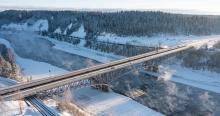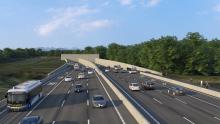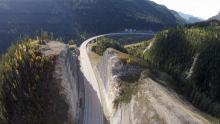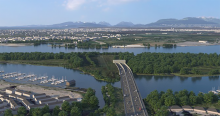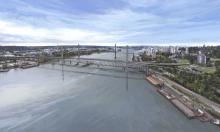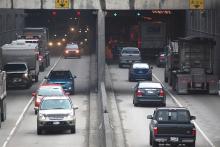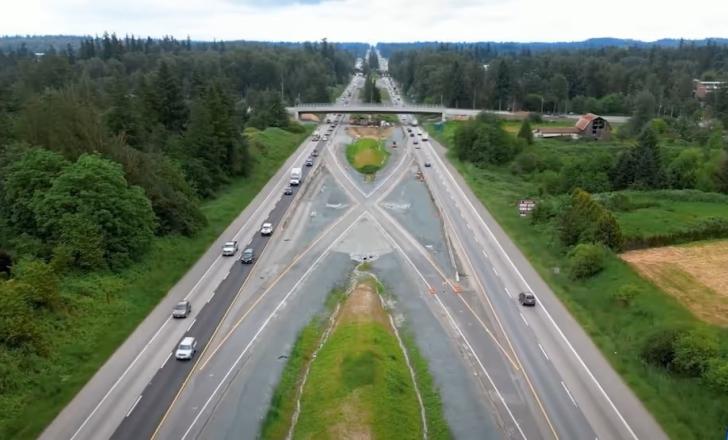
The provincial British Columbia government in Canada has pledged an extra US$1.96 billion for Highway 1 improvements through the Fraser River Valley near Vancouver.
Procurement for phase B of the overall project - between the communities of Langley and Abbotsford - is set to start in 2025, with significant construction starting in 2026 and completion targeted for 2031, according to the provincial ministry of transportation. The project includes construction of four interchanges and rebuilding of numerous highway overpasses to enhance the clearance height for commercial vehicles.
David Eby, premier of the province, announced the added funding for the work that will be entirely within Abbotsford along an 8km stretch of the Highway 1 – also called the Trans-Canada Highway.
Phase 3B components entail the addition of an HOV/battery-electric vehicle lane in each direction, a new Highway 11 interchange and replacement of the Peardonville Road crossing.
Meanwhile, phase 3A along 13km of the Trans-Canada will cost around $1.71 billion. The entire 21km Highway 1 phase 3 improvement segment will now cost $3.65 billion.
The Trans-Canada Highway is a federal–provincial highway system that runs nearly 7,500km from the Pacific to Atlantic coasts, through all 10 provinces - one of the longest routes of its type in the world. However, unlike Interstate highways in the US, the Trans-Canada has no national construction standard. Most of it was built as a two-lane highway with few multi-lane freeway sections and standards vary considerably among provinces and cities.

